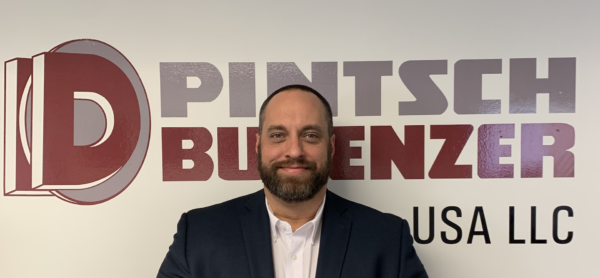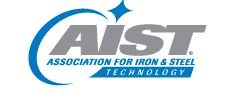Pintsch Bubenzer USA will again deliver a presentation to the Association for Iron & Steel Technology (AIST) Crane Symposium. The event takes place August 15-17th at the Omni William Penn Hotel in Pittsburgh, Pennsylvania.

Pintsch Bubenzer USA, a manufacturer of high-performance disc and drum brakes for steel cranes and other severe duty applications, is familiar to symposium delegates, having presented two years ago on, ‘Crane emergency brakes in critical lift applications’. This time, Joel Cox, president; and Mike Astemborski, executive sales manager, will deliver a paper titled, ‘Lifting or lowering a load safely after failure or incident’, at 10:30 a.m. on August 16.
The symposium, organized by AIST’s Cranes Technology Committee, sets out to deliver practical information and experiences from maintenance personnel, crane manufacturers, equipment manufacturers, and engineering consultants with the sole intention of making electric overhead traveling (EOT) cranes and their runways the safest, most reliable, durable machines in the steel industry.

Cox said: “Of course, despite the content of our presentation, we want to prevent failure or incident before it happens. Many accidents occur because of an oversight at the planning stages, or the lack of a sufficient lift plan. However, even with a plan in place, things can go wrong, so knowing how to lift or lower a load safely after failure or incident is very important.”
Large cranes are commonplace in steel mills where they can be up to 450 tons or more in capacity and lift ladles of molten metal that are poured into casting machines. Pintsch Bubenzer constantly campaigns for more efficient sharing of information for continued improvement of best practices. Steel crane owners and users have been encouraged by the manufacturer to consider the safety benefits of installing emergency brakes, for example, especially in environments where critical lifts are part of everyday life.
Astemborski said that “less than 10%” of cranes in the steel sector, including new ones, are fitted with emergency brakes in the United States. He added: “All too often a major incident leads to an investigation that exposes the lack of an emergency brake—but then it’s too late. We need to continue our outreach campaigns and endeavors to educate steel and other professionals so they specify emergency brakes at the earliest stage of dialog with a crane manufacturer. Frankly, an OEM is unlikely to propose a cost-adding feature when it could inflate their bid in a competitive tender situation.”
The Pintsch Bubenzer SF emergency brake acts directly on the ladle crane’s drum, eliminating any chance of drivetrain failure causing a dropped load on a critical lift crane such as a hot metal or ladle crane. Typically the brake is mounted next to the motor, allowing for multiple shafts, gears, and bearings to fail between the brake and the drum.
Cox said: “We will continue to align ourselves, and share information, with the AIST Crane Symposium, the Cranes Technology Committee, its memberships, and delegations, as we look to raise safety levels in this heavy-duty marketplace.”
- Pintsch Bubenzer USA’s paper, ‘Lifting or lowering a load safely after failure or incident’, will be delivered at 10:30 a.m. on August 16. View the full event schedule here: https://www.aist.org/conference-expositions/technology-training/annual-crane-symposium/schedule











